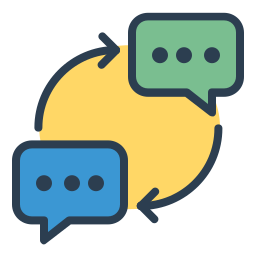
Listen to Using ChatGTP for SEO
If you are not familiar with ChatGTP, it allows you to ask questions and get written answers in varying length. It is based off of a technology called Natural Language processing, that amalgamates data into human-readable format to answer questions or make statements. But is it good for SEO?
Natural language processing (NLP) is a field of artificial intelligence and computer science that focuses on the interaction between computers and humans through the use of natural language. In the context of SEO, NLP techniques can be used to analyze and understand the language used on a website or in a search query in order to improve search rankings and the user experience.
There are several ways that NLP can be used for SEO:
-
Keyword research: NLP tools can help you identify the most relevant and popular keywords to target in your content.
-
Content optimization: NLP can be used to analyze the language used on your website and identify areas for improvement, such as adding missing keywords or identifying and fixing confusing or ambiguous language.
-
Search query understanding: NLP can be used to analyze and understand the intent behind search queries, which can help you optimize your website content to better match the needs of your target audience.
-
Sentiment analysis: NLP can be used to analyze the sentiment expressed in reviews or social media posts about your business, which can help you understand how people feel about your brand and identify areas for improvement.
Overall, NLP can be a powerful tool for SEO, helping you understand and optimize your website and content for better search rankings and a better user experience.
Using NLP (ChatGTP) for keyword research
There are several ways that natural language processing (NLP) can be used for keyword research:
-
Keyword extraction: NLP tools can be used to automatically extract the most important keywords and phrases from a piece of text. This can be useful for identifying the key themes and topics covered in a document or webpage.
-
Keyword expansion: NLP can be used to generate related or synonym keywords for a given seed keyword. This can help you identify a wider range of keywords to target in your content.
-
Keyword analysis: NLP can be used to analyze the language used on a webpage or in a search query in order to understand the user’s intent and identify the most relevant keywords to target.
-
Keyword trend analysis: NLP can be used to analyze large amounts of data, such as search query data, in order to identify trends and changes in the popularity of different keywords over time.
Overall, NLP can be a valuable tool for keyword research, helping you identify the most relevant and popular keywords to target in your content in order to improve your search rankings.
Using NLP (ChatGTP) for keyword optimization
To use natural language processing (NLP) for keyword optimization, you can follow these steps:
-
Identify the main topic or theme of your content. This will be the basis for your keyword research.
-
Use a keyword research tool to generate a list of related keywords and phrases. Some popular tools include Google’s Keyword Planner, Ahrefs, and SEMrush.
-
Analyze the search volume, competition, and relevance of the keywords on your list. This will help you prioritize which keywords to target first.
-
Incorporate the selected keywords into your content in a natural way. This may include using them in your headlines, subheadings, and body text.
-
Use NLP techniques to analyze the language and sentiment of your content. This can help you optimize the tone and style of your writing to better resonate with your target audience.
Monitor the performance of your content and keywords using analytics tools such as Google Analytics. This will help you understand how well your optimization efforts are paying off and identify areas for improvement.
The content above, except the first three sentences was written with ChatGTP. All I did was ask it the question that I used for the heading and below the headings are the content it generated.
Of course ChatGTP can be used for SEO. Generating snippets, research, finding out how your users search. All of those can be augmented with ChatGTP or another natural language processing tool.
Over the next couple of posts, I will go more in depth, with specific examples of how you can use ChatGTP for SEO with real world examples.
About the Author: Lesley Paone
Lesley has worked in e-commerce for over a decade, and is the founder of dh42. Starting out with PrestaShop and brancing out into other platforms like Shopify. He loves all things e-commerce and loves a challenge, in his spare time he helps moderate several forums on SEO, e-commerce, as well as the PrestaShop forum. If you have any questions for him about any of his articles just use our contact form to contact him.
